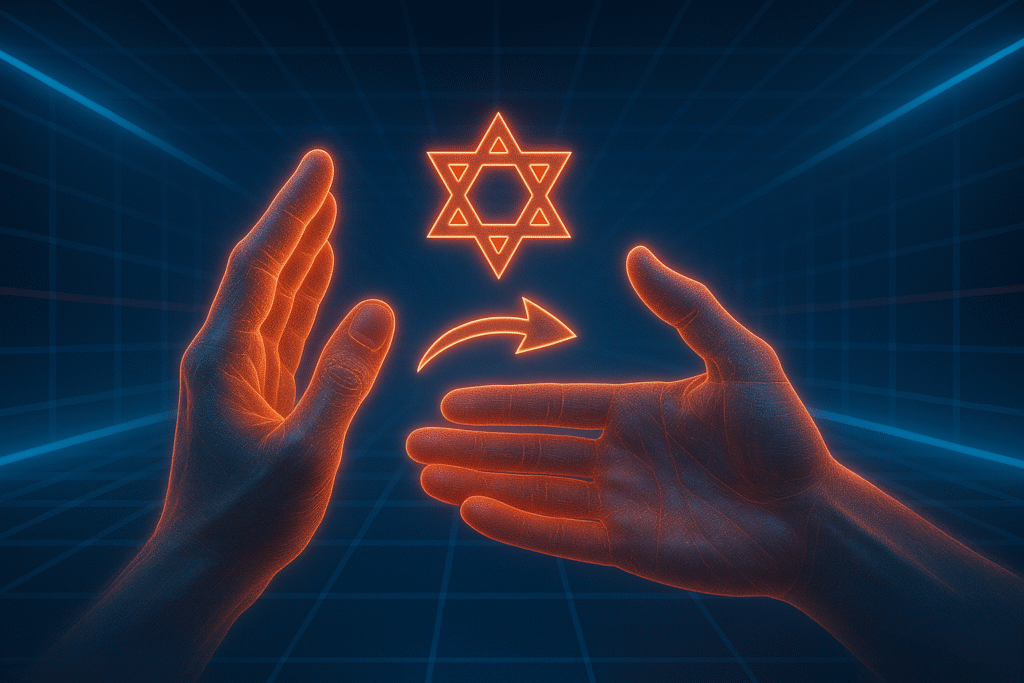Sophia Rosenberg, a 39-year-old professor of comparative literature from Paris, embodied a distinctly modern Jewish paradox. Raised by parents who were prominent left-wing intellectuals—her father a historian specializing in labor movements, her mother a Sartre scholar—Sophia grew up in a household where Jewish identity was expressed exclusively through intellectual and cultural channels, deliberately divorced from religious practice.
Her childhood Sundays were spent not in synagogue but in museums and libraries. While her parents proudly identified as Jewish and ensured she understood her heritage, they viewed religious observance as antiquated superstition. The family celebrated Passover as a historical liberation narrative rather than a religious event, maintained no kosher practices, and never attended synagogue. Sophia grew up fluent in Jewish intellectual traditions and history but could not read Hebrew or recite basic prayers.
This secularism was challenged in her late thirties when rising antisemitism in France—including the vandalization of her university office with antisemitic graffiti and increasingly frequent public hostility—forced her to confront the reality that regardless of her religious views, she remained vulnerable as a Jew. After a visiting professorship at Tel Aviv University gave her a glimpse of life in Israel, she began considering aliyah as both a practical security measure and an opportunity to explore her Jewish identity on new terms.
Her application faced significant scrutiny because:
- She openly identified as an atheist who rejected religious concepts
- She had never participated in any Jewish religious ceremonies
- She had no connection to any synagogue or rabbi
- She could not produce a single piece of documentation showing religious participation
- She had publicly written essays critical of religious fundamentalism, including within Judaism
The resolution hinged on the “Cultural Judaism Recognition Framework” established in 2018 following the case of Marcel Cohen, a similar French intellectual. Sophia’s legal counsel developed a comprehensive case demonstrating her legitimate Jewish identity beyond religious practice:
- Documentary Evidence of Jewish Heritage
- Birth certificates tracing her matrilineal Jewish ancestry through three generations
- Her grandmother’s refugee documentation from Nazi-occupied Poland
- Family photographs of Jewish cultural celebrations
- Letters between her grandfather and cousins discussing family history in distinctly Jewish contexts
- Cultural Jewish Identity Evidence
- Her published academic works on Jewish literary figures and diaspora experiences
- Documentation of her participation in Holocaust remembrance events
- Her leadership in organizing an academic conference on Jewish intellectual traditions
- Syllabi from her university courses on Jewish literature and cultural history
- Testimonials from Jewish colleagues attesting to her consistent self-identification as Jewish
- Intellectual Engagement with Judaism
- A portfolio of her essays exploring Jewish identity in a secular context
- Evidence of her membership in Jewish cultural and historical organizations
- Documentation of her public lectures on topics related to Jewish diaspora experiences
- Her personal library containing extensive works on Jewish history and thought
- Correspondence with Jewish thought leaders demonstrating engagement with Jewish ideas
After a six-month evaluation, the Ministry of Interior approved her application, explicitly stating: “Jewish identity encompasses religious, cultural, historical, and intellectual dimensions. The applicant has demonstrated profound engagement with Jewish culture, history, and ideas, establishing an authentic Jewish identity expressed primarily through intellectual and cultural channels. Her secular approach to Jewish identity reflects a significant tradition within Israeli society itself.”
Sophia successfully made aliyah in 2022 and accepted a position at Hebrew University in Jerusalem. She has found community among Israel’s substantial secular Jewish population while beginning to explore some religious traditions out of cultural curiosity rather than faith. She reports finding both personal security and intellectual stimulation in a society where the boundaries of Jewish identity remain fluid and contested—mirroring her own complex relationship with her heritage.
